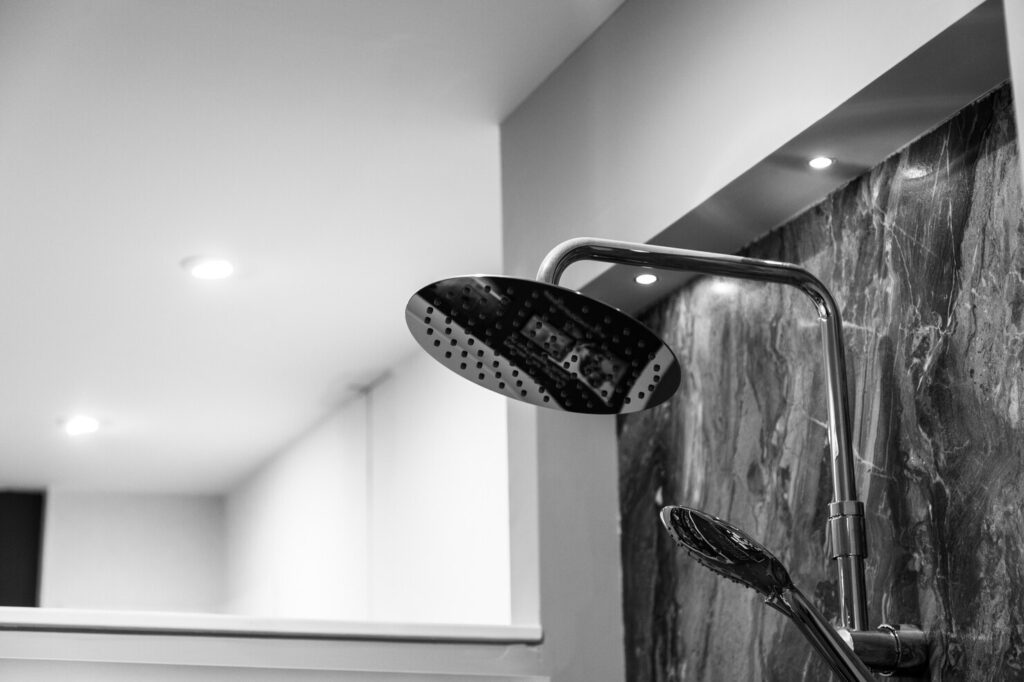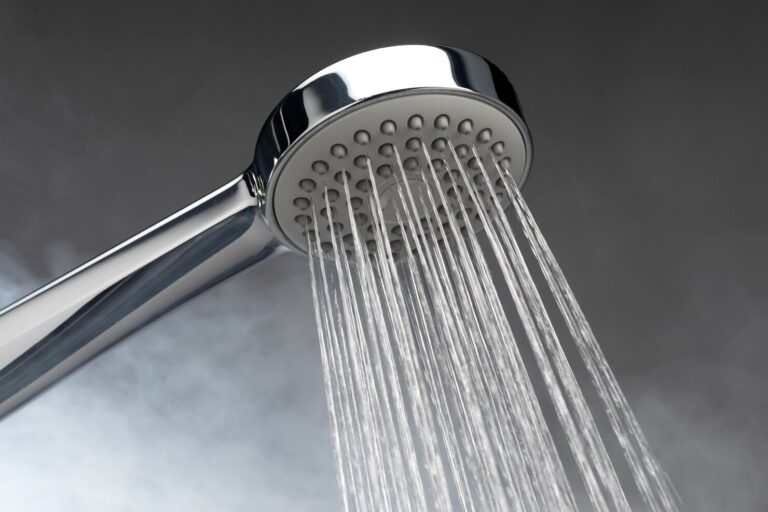Showers Need Insulation: Why It’s Important and How to Do It
If you’re like most people, you probably don’t give much thought to the insulation in your shower. After all, it’s not exactly the most glamorous part of your home. However, proper insulation is crucial for maintaining a comfortable and safe environment in your bathroom. In this article, we’ll explore the importance of insulation for showers, the different types of insulation materials available, and some best practices for installation and maintenance.
Insulation is essential for keeping your shower warm and dry. Without proper insulation, the heat from your shower will escape, leaving you cold and uncomfortable. Additionally, moisture can build up inside your walls, leading to mold, mildew, and other issues. By insulating your shower, you can keep the heat in and the moisture out, creating a more comfortable and healthy environment. So if you’re looking to upgrade your bathroom, don’t overlook the importance of insulation.
Key Takeaways
- Insulation is crucial for maintaining a comfortable and safe environment in your bathroom.
- Proper insulation helps keep the heat in and the moisture out, preventing mold, mildew, and other issues.
- There are different types of insulation materials available, and proper installation and maintenance are essential for ensuring the longevity of your insulation.
Importance of Insulation for Showers
When it comes to your shower, insulation is an essential component that should not be overlooked. Proper insulation helps to maintain the temperature of the water, reduce energy costs, and prevent moisture buildup. In this section, we will discuss the importance of insulation for showers in more detail.
Energy Efficiency
Insulating your shower walls can help improve energy efficiency by reducing heat loss. When your shower walls are not properly insulated, heat can escape, making your water heater work harder to maintain the desired temperature. This can lead to higher energy bills and a less comfortable shower experience.
To improve energy efficiency, consider using spray foam insulation or rigid foam insulation. According to 33rdsquare.com, spray foam insulation is a great option as it forms a tight, seamless barrier that blocks air flow exceptionally well. It also resists vapor transmission the best and has an R-value of 5–6 per inch, which means it insulates very effectively. Rigid foam insulation is also a good choice, as it offers a high insulation value, ensuring that heat stays in and cold air stays out. Additionally, it is resistant to moisture and mold.
Moisture Control

Another important reason to insulate your shower walls is to prevent moisture buildup. Moisture buildup can lead to mold and mildew growth, which can be harmful to your health and cause damage to your home.
To prevent moisture buildup, consider using spray foam insulation or polystyrene foam insulation. According to Angi.com, spray foam insulation is a great option as it creates a seamless barrier that prevents moisture from penetrating the walls. Polystyrene foam insulation is also a good choice as it is resistant to moisture and mold.
In conclusion, proper insulation is essential for a comfortable and healthy shower experience. Insulating your shower walls can help to improve energy efficiency, prevent moisture buildup, and reduce the risk of mold and mildew growth.
Types of Insulation Materials
When it comes to insulating your shower, there are several types of insulation materials to consider. Each type has its own unique benefits and drawbacks, so it’s important to choose the right one for your specific needs.
Fiberglass
Fiberglass insulation is a popular choice for insulating shower walls. It’s affordable, easy to install, and widely available. Fiberglass insulation comes in batts or rolls, and can be cut to fit any size or shape of shower. It’s also resistant to moisture and mold, making it a good choice for use in damp areas like showers.
One downside of fiberglass insulation is that it can be itchy and irritating if it comes into contact with skin. It’s important to wear gloves, long sleeves, and a mask when handling fiberglass insulation to avoid irritation.
Foam Board
Foam board insulation is another option for insulating shower walls. It’s made from rigid foam panels that are cut to fit the size of your shower. Foam board insulation is lightweight, easy to install, and provides good insulation value.
One advantage of foam board insulation is that it’s resistant to moisture and mold, making it a good choice for use in damp areas like showers. However, foam board insulation can be more expensive than other types of insulation, so it may not be the best choice if you’re on a tight budget.
Spray Foam
Spray foam insulation is a popular choice for insulating shower walls. It’s applied as a liquid that rapidly expands and hardens in place, forming a super tight, seamless barrier that blocks air flow exceptionally well. Spray foam insulation resists vapor transmission the best and has an R-value of 5-6 per inch, so it also insulates very effectively.
One downside of spray foam insulation is that it can be more expensive than other types of insulation. It’s also more difficult to install and requires professional equipment to apply. However, spray foam insulation provides excellent insulation value and can help reduce energy costs over time.
Overall, when choosing an insulation material for your shower, it’s important to consider factors like cost, ease of installation, and resistance to moisture and mold. By choosing the right insulation material, you can help keep your shower warm, dry, and comfortable.
Installation Techniques
Preparation and Safety
Before installing insulation in your shower walls, it is important to take the necessary safety precautions to protect yourself. Wear gloves, a mask, and safety glasses to avoid contact with insulation fibers. Also, make sure the area is well ventilated to prevent the buildup of harmful fumes.
To prepare the area for insulation, remove any existing insulation and clean the shower walls thoroughly. Make sure the walls are dry and free of any debris before proceeding with installation.
Step-by-Step Installation

There are several types of insulation that can be used for shower walls, including fiberglass, spray foam, rigid foam, cellulose, and mineral wool. Choose the type of insulation that best suits your needs and budget.
To install the insulation, start by measuring the shower walls to determine the amount of insulation needed. Cut the insulation to size and fit it snugly into the wall cavity. Use a staple gun or adhesive to hold the insulation in place.
Attach a vapor barrier to the warm side of the insulation toward the shower interior to prevent warm, humid air from moving through and condensing inside the wall cavity. This will help prevent mold and mildew growth.
After the insulation and vapor barrier are installed, cover the walls with cement board or another suitable backing material. This will provide a solid surface for the tile or other finishing material.
In conclusion, installing insulation in your shower walls is an important step in creating a comfortable and energy-efficient space. By following these installation techniques, you can ensure a safe and effective installation that will provide long-lasting benefits.
Maintenance and Longevity
Regular Inspections
To ensure that your shower insulation is working properly, it’s important to perform regular inspections. Inspect the insulation for signs of damage or wear, such as cracks, gaps, or tears. Check for any signs of moisture or water damage, such as mold or mildew growth. If you notice any issues, address them promptly to prevent further damage.
Addressing Issues Promptly
If you do notice any issues with your shower insulation, it’s important to address them promptly. Ignoring insulation problems can lead to more serious issues down the line, such as water damage, mold growth, and increased energy bills. If you notice any damage or wear, replace the insulation as soon as possible. If you notice moisture or water damage, take steps to address the underlying issue, such as fixing leaks or improving ventilation.
Regular maintenance and prompt repairs can help extend the lifespan of your shower insulation and ensure that your shower remains comfortable and energy-efficient. By staying on top of maintenance and repairs, you can save money on energy bills and prevent costly water damage in the long run.
Read More: Why Do I Hate Showering?





